Directed by: Mike Flanagan
Written by: Charise Castro Smith, Elizabeth Ann Phang, Meredith Averill, Mike Flanagan, Scott Kosar
Starring: Carla Gugino, Elizabeth Reaser, Henry Thomas, Kate Siegel, Michiel Huisman, Oliver Jackson-Cohen, Timothy Hutton, Victoria Pedretti
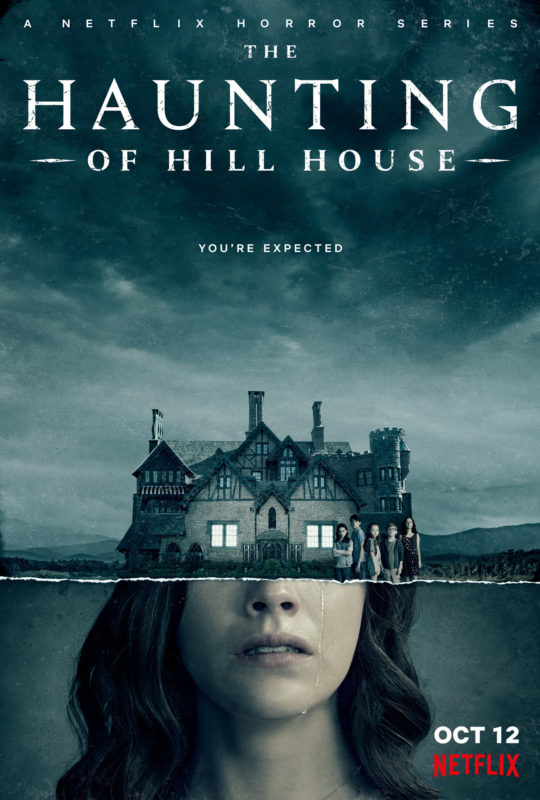
At the bottom of this review, I’m going to call The Haunting of Hill House one of the best individual seasons of TV I’ve ever seen. If you want to avoid all spoilers, stop here, log on to Netflix and cancel all plans for the next ten hours. Sure, on face value it’s another haunted house horror inspired by the quintessential haunted house novel, previously adapted for the definitive haunted house film. However, the latest collaboration between Mike Flanagan and Netflix has more than a few tricks up its sleeve. And shows there’s plenty life in the subgenre yet. In short, the Haunting of Hill House is a near perfect small screen horror. To find out why, with very few specifics, go beyond the red door.
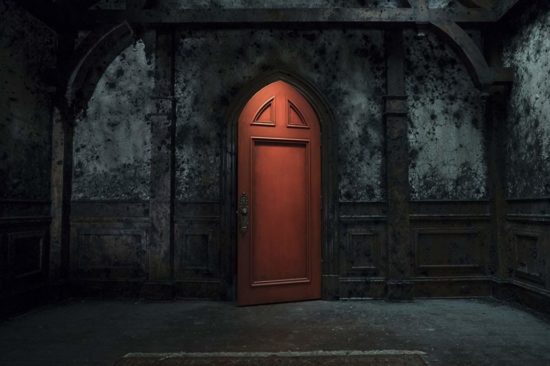
Following the exceptional Gerald’s Game (given the five star treatment here), Flanagan ups his typically small scale to follow the Crane family across two time periods. What’s impressive is how he widens the scope without losing the intimacy; each family member gets their own episode, arc and time to shine. We are first introduced to Steve (Huisman), a writer who doesn’t believe a thing that happened at Hill House, but is happy to make a buck from it. His siblings include tightly-wound mortician Shirley, psychic outsider Theo (Siegel), and traumatised twins Luke (Jackson-Cohen) and Nell (Pedretti). Watching over them is their father Hugh (Hutton), who became estranged after their mother’s (Gugino) apparent descent into insanity. Of course, at the centre is a house – one characterised enough to have its own face – where we see them live in flashbacks with a frankly incredible young cast (in particular, Lulu Wilson has an astonishingly expressive face). Over time we learn what happened to them that last night, and the power it still has over them. While normally it goes that you can’t really go home, The Haunting of Hill House asks if you can ever actually leave.
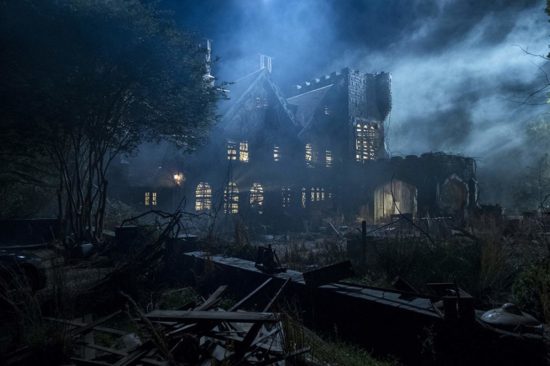
The long form TV format, with its focus on recurring characters, sometimes neuters horror. For example, in its efforts to establish an ensemble, the Scream series forfeited the ‘anyone can die’ aspect of its premise. Then you have other shows like Bates Motel, and to a lesser extent Hannibal, that use dramatic irony, and an awareness of what the audience already know, to draw out a prolonged arc. Given its small core cast, and only loose connection to its source material, The Haunting of Hill House could so easily have sacrificed suspense for running time. Yet what makes it stand out among its peers is how well the source of tension is personalised. Early on, Steven observes “ghosts are guilt, ghosts are secrets, ghosts are regrets and failings, but most times a ghost is a wish”. While these words seem cynical, they take a deeper meaning as we get to know our characters, and understand what unfinished business the apparitions that haunt them years later embody. On their own terms, a faceless figure, a bent necked lady and a floating old man would be scary, but here they’re also poignant. Thus, though the show is seldom truly terrifying, its sophisticated integration of themes and threat gives these scenes an emotional edge so often missing from ghost stories.
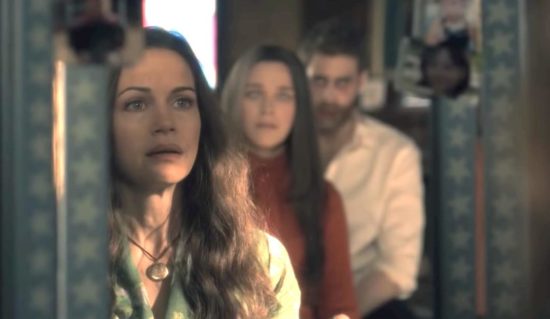
Sure, it also has moments of real terror and intensity, with some really effective jumps and prolonged tension. But they almost always come in tandem with the human drama, with the story of Shirley getting into the death industry, and Luke’s addiction being great examples of dramatic horror. The jewel in the crown though, is episode 6 – Two Storms: the stand out of the season, and very maybe one of the most accomplished hours of TV I can think of. Seriously, add twenty minutes to it for context and you got the best horror film of 2018. The rhythm is just right. While it has scenes of sustained dread, helped immensely by Flanagan’s mastery of lighting and long takes, what’s so impressive is how they are blended with troubled family dynamics. He knows the sense of loss, trauma and the idea you won’t get to say goodbye can be as scary as the worst things Hell could offer. This means that the endgame, whilst not without its frights, is more about making an audience cry rather than jump. How it serves the characters and themes is exemplary. Some will say its Netflix tricking people into watching a family drama by putting it in eerie packaging. Yet I suspect Flanagan knows what other masters of horror know: that the genre can be a great means of exploring everyday issues under exceptional circumstances.
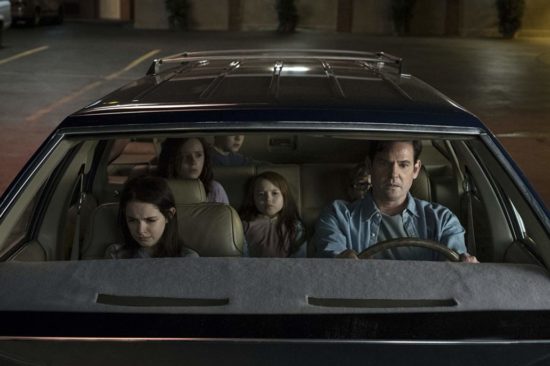
Really, the storytelling is first rate from the start. Purists of the novel may resent how little it takes from it, with character names, a few select quotes (cups of stars, and journies ending in lovers meeting) and a big spooky house being the extent of the crossover. Though with his layered use of metaphor, gothic sensibilities and fiendish mind games, Flanagan shows himself to be something of an heir to Jackson as much as Stephen King. The narrative plays effortlessly with time, having the past and present share rooms, corridors and reflections. They tease each other, whisper to each other and haunt each other. The result is often a harrowing reminder that try as our characters may, they can’t escape past mistakes. Yet often it can be transcendent. With both Gerald’s Game, and Before I Wake, Mike Flanagan has shown that as dark as his vision may get, there will always be light. Even if it’s just a crack, it gets through, by people coming together for the worst days of their lives, by children teaching their siblings how to face down monsters or by virtue of the sacrifices adults make for them without question. Much like Sai King, who he will work with again on the upcoming Doctor Sleep, Flanagan is above all an optimist. In his world, though we should mourn the dead, they are not lost from us. And if we listen to them they can give us solace and comfort as well as a fright. As children are forged into adults in the furnace of formative experience, and those adults lean on the lessons learnt in childhood, the past and present aren’t treated as separate entities as much as shadows of one another. Seeing them bleed so effortlessly into one another isn’t just good plotting – it’s excellent writing.
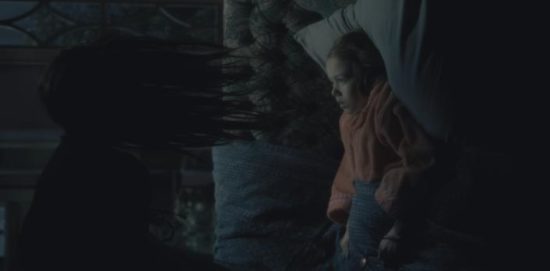
I have my nit-picks. The narrative sometimes drags when characters refuse to accept the supernatural well into the third act, and the odd selectivity of when ghosts make themselves visible to more than one person. However, neither of these interfere with the larger picture, nor make for a less powerful experience (the former leads to great payoffs). What’s more problematic is that the mental health parallels are sometimes uncomfortable. It may be a modern trope, but the tendency for signs of real disorders to get explained by ghosts (e.g. someone speaking to a person who isn’t there) can border on bad taste. To be fair, its far less schlocky than Lights Out, or even Hereditary. Moreover, the analogy is also handled with sensitivity where it matters, with the symptoms themselves not being scary, and Steven’s insistence on bad genes being undermined by the unambiguously mystical nature of the occurrences. The almost paranormally strong cast also ensure that even if the literal story isn’t, the emotional, abstract one feels very real (seriously, Gugino in particular deserves every award going). It’s for these reasons, and many more which would be saying too much, that The Haunting of Hill House isn’t just an outstanding horror show – but a brilliant drama. Last year, Flanagan got under my skin with Gerald’s Game – maybe one of my top ten horror films of all time. This year, he’s made one of the greatest individuals seasons of anything I’ve ever seen. I don’t need a future David to tell me he’ll go down as one of the all-time greats. A modern masterpiece and maybe the finest ghost story of this generation.
The Haunting of Hill House is available now on Netflix.



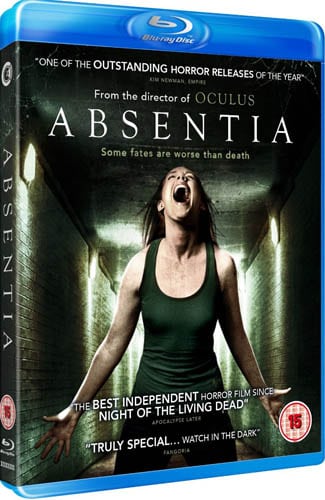
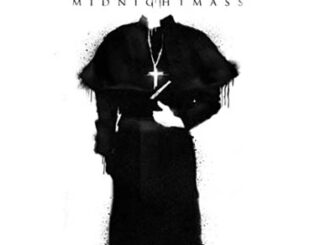
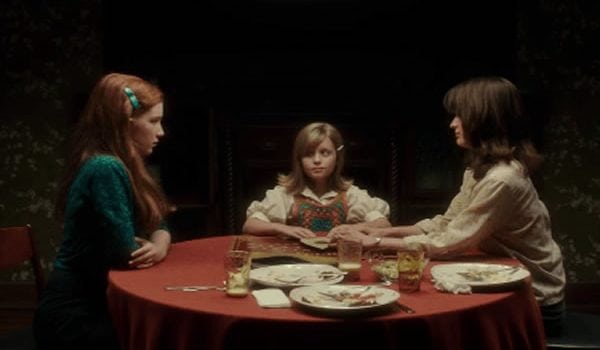
Be the first to comment